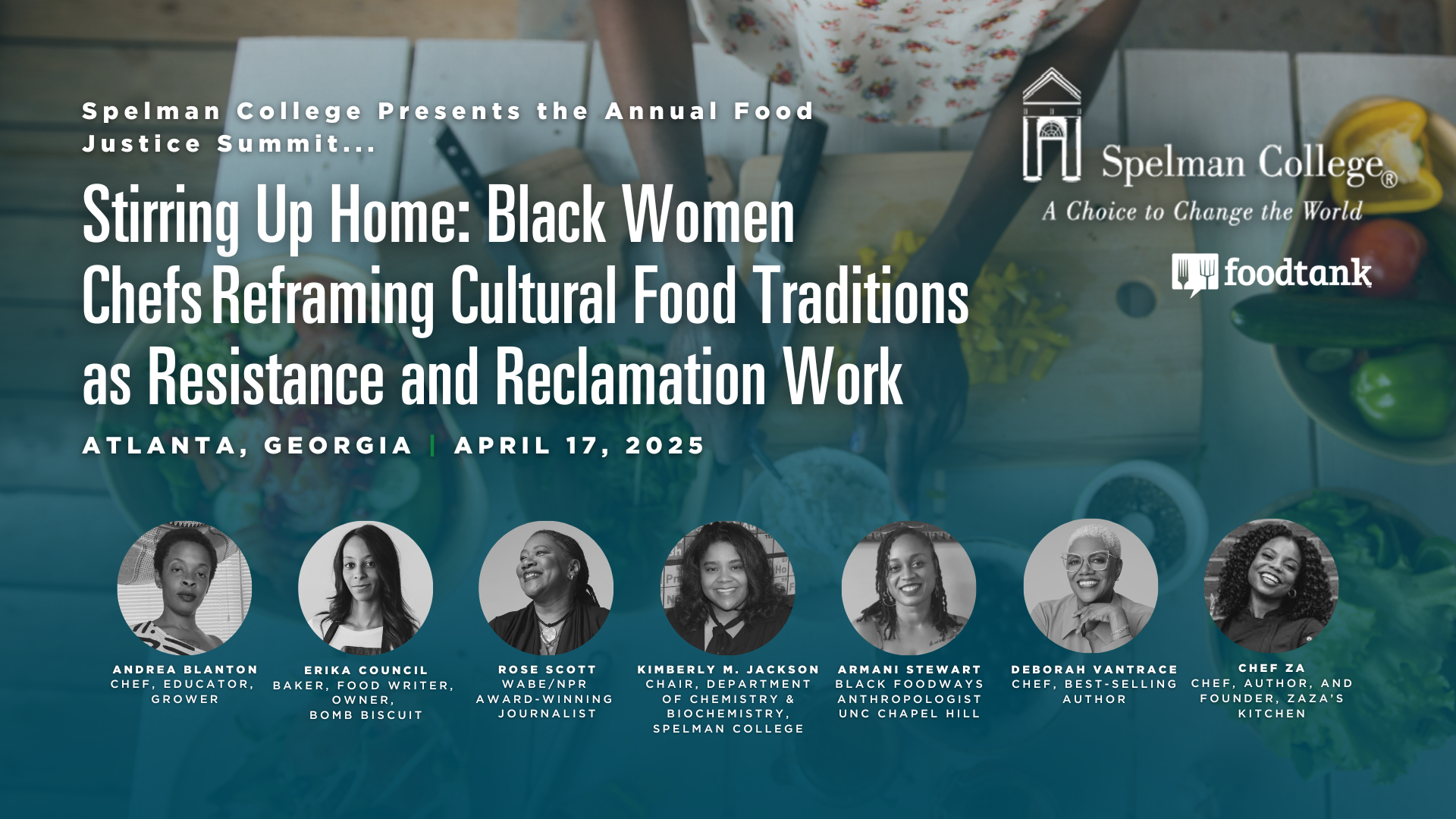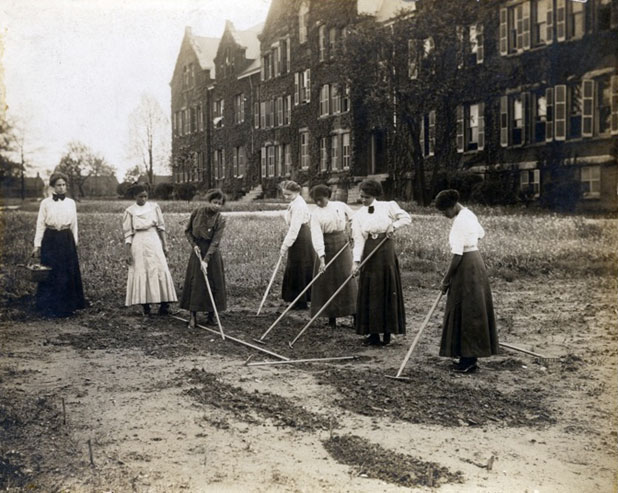Join the Food Studies Program for a few upcoming sessions as they tap into the business of food. Hear from industry leaders from across the U.S. share their perspectives on existing opportunities and challenges surrounding food entrepreneurship. The Food Studies program positions food at the center of academic inquiry, calling attention to the multifaceted ways food, and discourses surrounding it, influence us as not only as biological beings, but social and cultural actors as well.
Food Justice Summit 2025 Get Free Tickets Watch Online

Have a question? Want to connect with the program?
Email us
Interested in the Minor? We’re accepting a new cohort of Food Studies Scholars in Fall 2024!
Food Studies Program
350 Spelman Lane, SW
Atlanta, GA. 30314
404-270-5792
foodstudies@spelman.edu
Mon. - Fri. | 9 a.m. - 5 p.m.
 The food studies minor at Spelman College requires students to engage multiple theoretical and disciplinary perspectives, transcending individual disciplinary constraints in order to explore food in innovative ways. Food as the object of scholarly attention is not new. Many features of food are commonly explored across academic disciplines, from chemistry, biology and environmental sciences to economics, history, humanities and the social sciences.
The food studies minor at Spelman College requires students to engage multiple theoretical and disciplinary perspectives, transcending individual disciplinary constraints in order to explore food in innovative ways. Food as the object of scholarly attention is not new. Many features of food are commonly explored across academic disciplines, from chemistry, biology and environmental sciences to economics, history, humanities and the social sciences.
The minor seeks to guide students in questioning the very foundations of what we consider “food” to be, challenging them to consider how food - its naming, production, distribution, and consumption - is historically contingent and, as critical food studies researchers note, is simultaneously a site of pleasure and power dynamics. Upon completion of the minor, students will be able to do the following:
| Develop a global and comparative perspective about food’s cultural, social, and biological significance |
| Develop an intersectional framework from which to understand gendered experiences of food production, distribution, and consumption |
| Apply theoretical approaches to studying food to real world problems |
| Understand that food lies at the nexus of multiple dimensions—environmental, political, biological, cultural, etc. — and approaches to addressing food-related problems must be multifaceted. |
| Examine the ways food is centered in political discourses in both domestic and global spheres (e.g., social welfare policies, conglomeration of food corporation, food system, globalization, constructions of world hunger) |
The Food Studies program positions food at the center of academic inquiry, calling attention to the multifaceted ways food, and discourses surrounding it, influence us as not only as biological beings, but social and cultural actors as well.
View Food Studies Events
It's time to explore our beautiful campus! Sign-up today, bring your family, and let us show you what will make Spelman College your home away from home!
